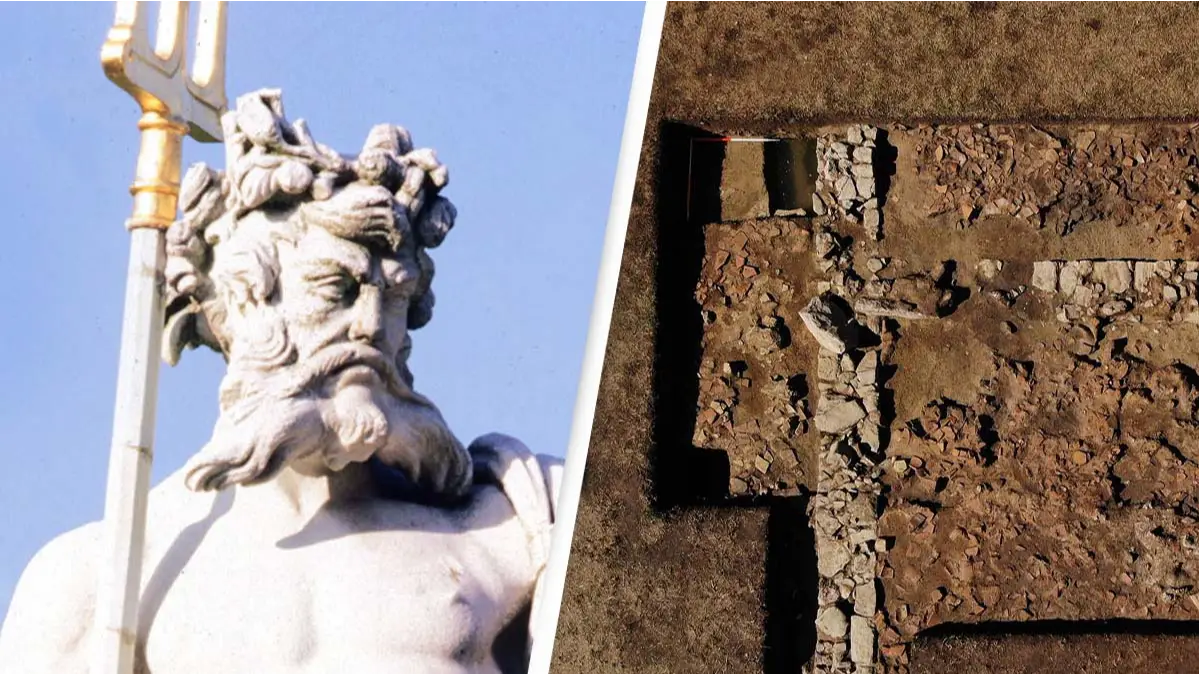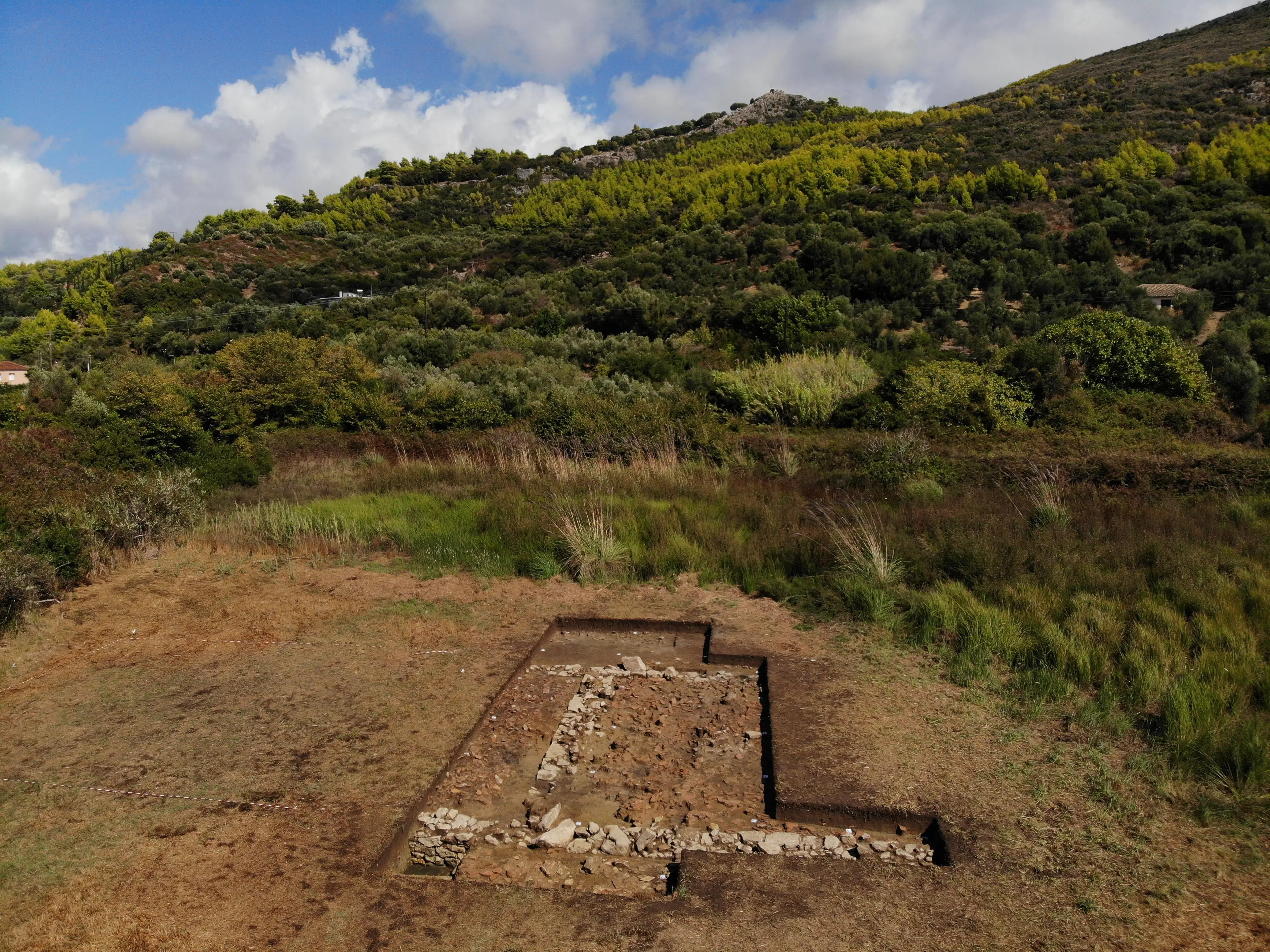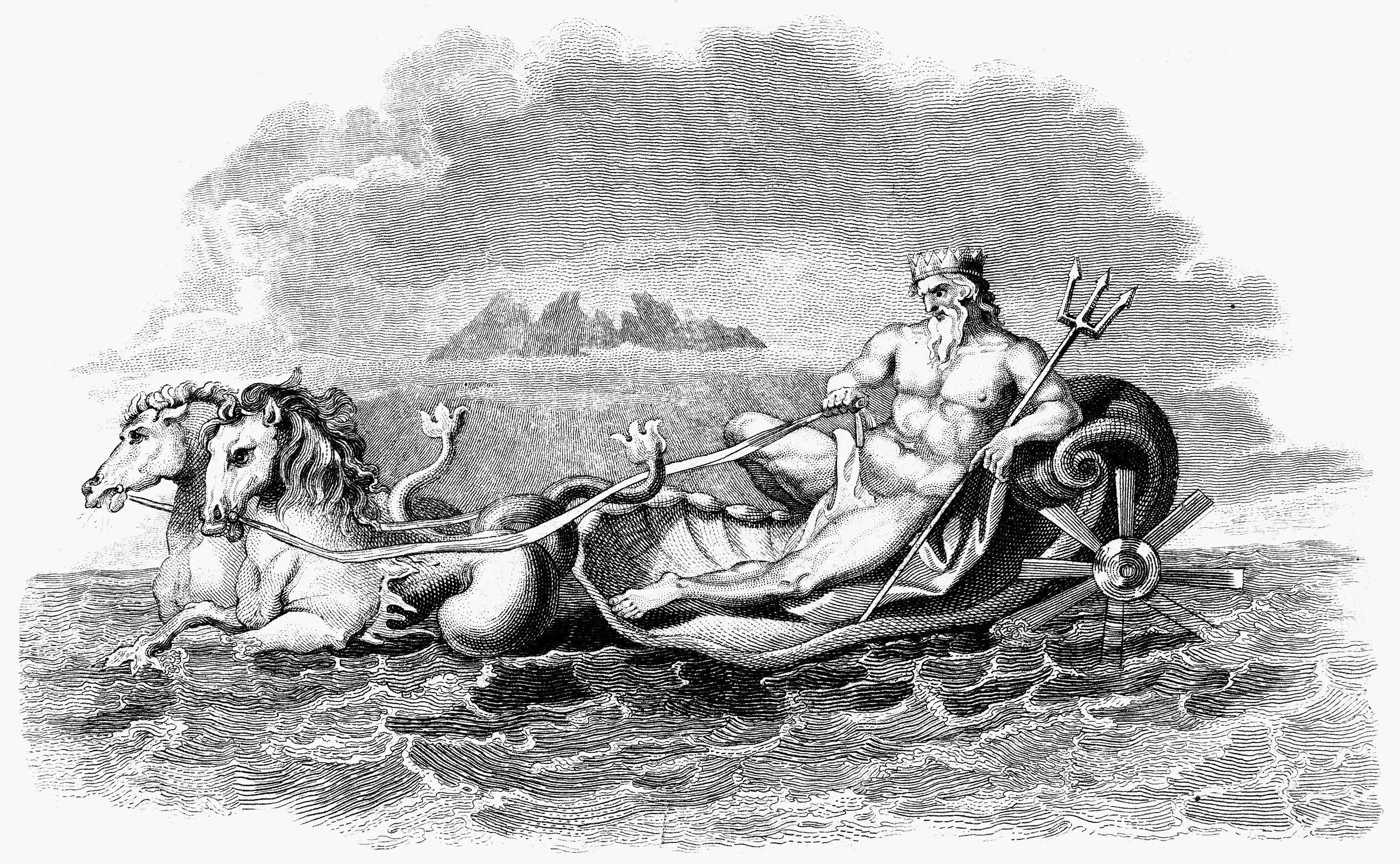
The incredible discovery of an ancient temple to Poseidon, the Greek god of the sea, was made in a part of Greece historically known for being struck by tsunamis.
Nestled in the hills near the Greek village of Samikon is an archaeological site where a team of experts have discovered the remains of a temple to Poseidon.
Led by the Austrian Archaeological Institute, the team of archaeologists found the site they believe once held a temple and a grove of wild olives and think it was dedicated to the sea god from Greek mythology.
This may even be a shrine written about in the works of the Ancient Greek historian Strabo, who referred to an important shrine located on the West Coast of the Peloponnese.
Advert
Traces of the site were first found in 2021 by Dr. Dennis Wilken of Kiel University, and excavation work carried out the next year discovered the foundations of the ancient temple, which matched Strabo's historical accounts.

Professor Andreas Vött of Mainz University had been surveying the area since 2018 to work out the truth behind the geography of the place.
He said: "The elevated situation provided by the hills would have been of fundamental importance in antiquity as it would have made it possible to move on dry land along the coast to the north and to the south."
"The results of our investigations to date indicate that the waves of the open Ionian Sea actually washed up directly against the group of hills until the 5th millennium BCE.
"Thereafter, on the side facing the sea, an extensive beach barrier system developed in which several lagoons were isolated from the sea."
Researchers believe the temple's location in the tsunami-battered hills may have been no accident, suggesting the shrine's site had been specially picked because of these extreme occurrences.

In Greek mythology, Poseidon was responsible for both tsunamis and earthquakes, which would have made the location a fitting choice.
Professor Vött's conclusion that the waves used to lap up against the hills in the days of antiquity lend further weight to the idea that the temple was dedicated to Poseidon.
If the Ancient Greeks were hoping to calm Poseidon down a bit by erecting a temple right on his doorstep, it didn't work.
That's not much of a surprise considering in Greek mythology most of the gods are a bunch of awful pricks who mess up the lives of humans and can't keep it in their pants.
Poseidon in particular was quite the notorious a**ehole who punished people with natural disasters and floods, so any hopes of appeasing him were probably doomed from the start.
The tsunamis kept coming and the temple did not survive, leaving behind only foundations to be discovered much later.
Topics: World News, Weird, Weather